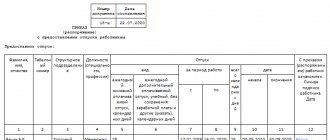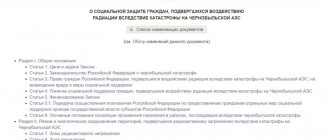Basic Concepts
In accordance with Art. 122 of the Labor Code of the Russian Federation, every officially employed citizen is entitled to annual paid leave with retention of position and salary. The right to use rest days comes after 6 months from the date of concluding an agreement with the organization. Up to six months from the beginning of official duties, the director can grant leave to women on maternity leave, minors, and citizens who have an adopted child under the age of 3 months in their care. According to the law, rest is due to part-time workers, employees with a free, shift and sliding schedule.
According to Art. 115 of the Labor Code of the Russian Federation, the vacation period is 28 days. In accordance with Art. 116 of the regulatory document, employees engaged in production with harmful and dangerous conditions, workers in the Far North, employees with irregular shifts, athletes and coaches, doctors, crew members of ships and aircraft are entitled to additional time off. Extended leave is available to disabled people, minor citizens, teachers, retired people who have officially entered into an agreement, and emergency services rescuers.
Attention! The head of an enterprise, on the basis of local acts, has the right to increase the time of legal removal from official duties.
What does a manager have to pay for?
According to Article 325 of the Labor Code of the Russian Federation, the employer pays for travel to the place of rest, as well as back. There are several principles confirmed by law:
- the place of rest must be located within the Russian Federation;
- the payment is made to both the employee and his family;
- the break from work must be paid once every two years;
- compensation will not be carried forward to subsequent years and cannot be cumulative.
Funds are paid at the time of vacation. The same applies to resigning employees who are entitled to full payment under labor law.
Download for viewing and printing:
Article 325 of the Labor Code of the Russian Federation “Compensation of expenses for payment of travel costs and baggage transportation to the place of use of vacation and back”
Features of providing vacation in the North
Russian legislation establishes additional privileges for employees working in areas with a low comfort zone. Carrying out activities in the northern regions and territories equivalent to them brings numerous inconveniences to individuals and puts their lives in danger. The regulatory document defines the purpose of state guarantees and compensation. The main benefit is additional paid northern leave.
Who is entitled to
To receive extended rest days, an employee must work in the northern part of the country, regardless of the location of the main office. If a citizen performs official duties remotely, when assigning leave, the place of registration is taken into account. Rest days are increased for employees working on shifts in the Far North, for example, oil workers. Additional time off is not provided to persons on a business trip to areas with harsh climatic conditions. Russian legislation defines subjects equated to the northern area:
- Kamchatka Krai;
- Magadan Region;
- Chukotka Autonomous Okrug;
- Sakhalin region;
- Yakutia;
- Murmansk region;
- islands of the Arctic Ocean, Bering and Okhotsk seas;
- individual cities of Arkhangelsk, Amur, Irkutsk, Tomsk, Tyumen regions, Krasnoyarsk, Perm, Primorsky, Khabarovsk Territories, the Republic of Altai, Buryatia, Karelia.
It is important to know! The legislation defines travel days for vacation for northerners. The benefit is provided once every two years. The length of additional time off depends on the travel time to the vacation destination.
Duration
Citizens working in areas with a harsh climate are provided with preferences. In Art. 321 of the Labor Code of the Russian Federation determines how many days of northern leave are due for officially employed persons. The duration of the main period of suspension from official duties is 28 days. In accordance with the regulatory document, the duration of additional rest for the regions of the Far North is 24 days, for territories equivalent to them - 16. 8 days are added to employees working in an area without harsh climatic conditions, but who have northern salary supplements. If a citizen is entitled to extended leave for other reasons, the total period is summed up without the possibility of replacement. The connection is valid for no more than 2 years. According to Art. 322 of the Labor Code of the Russian Federation, the duration of rest should not exceed 6 months, taking into account unpaid days off provided on the occasion of the birth of a child, wedding, or death of a close relative. A citizen has the right to use primary and additional leave separately.
Right to additional days
Preferential leave for northerners is provided after six months from the date of employment in harsh climatic conditions. In accordance with Art. 122 of the Labor Code of the Russian Federation, exceptions include pregnant women and employees returning from maternity leave, citizens under 18 years of age, and persons who have adopted newborn children. If a worker worked at an enterprise for more than six months, and subsequently transferred to a branch of a company located in the Far North and worked for less than 6 months, only basic leave of 28 days is granted. Employees have the right to sum up or divide additional days of rest into parts, while the duration of one period of suspension from official duties is less than 14 days.
Compensation for travel to a vacation spot
The employer is obliged to pay employees for tickets to the place of vacation and transportation of baggage of no more than 30 kg per person. The benefit is provided for one family member and a minor child. Vacation travel in the Far North is reimbursed once every two calendar years. Judges, prosecutors, and investigators are paid money every 365 days. Payment is made regardless of the type of transport. When traveling by car, to receive compensation, the employee's family members must travel together to the same vacation destination. For civil servants, there is a monetary limit for fares:
- branded train compartment;
- economy class airline ticket;
- the cost of a 5th class cabin for a sea vessel, 2nd category for a river vessel, 1st for a ferry;
- price of travel on ground public transport.
Attention! If an employee travels by personal car, the calculation takes into account the short distance to the place of arrival and the lowest cost of travel, defined as the price of a reserved seat on railway transport.
For full compensation, an employee of a government agency has the right to provide receipts from gas stations and documentary evidence of being on vacation in a specific city. In this case, the payment amount cannot be more than the fuel costs for the car, taking into account the short journey from the northern region to the vacation spot. Funds are accrued upon written application. Based on the document, the employee is given an approximate amount required for travel, which is subsequently recalculated when receipts and tickets are provided. In accordance with Art. 325 of the Labor Code of the Russian Federation, compensation cannot be transferred if used untimely.
Vacation while traveling
For the time that a “northerner” employee spends traveling to and from the place of vacation, he is granted leave without pay ( Part 2 of Article 128 , Part 3 of Article 322 of the Labor Code of the Russian Federation ). The right to such leave arises once every two years, starting from the second year of work (12 months of continuous work). In the future, the employee acquires the right to such leave starting from the fourth, sixth, etc. year of work, regardless of the time of actual use of the leave ( clauses 38 , 40 of Instruction No. 2 ). It should be noted that in this case, leave without pay for travel to the place where the leave is used and back is targeted, that is, it is not saved if the employee does not use it in a timely manner.










